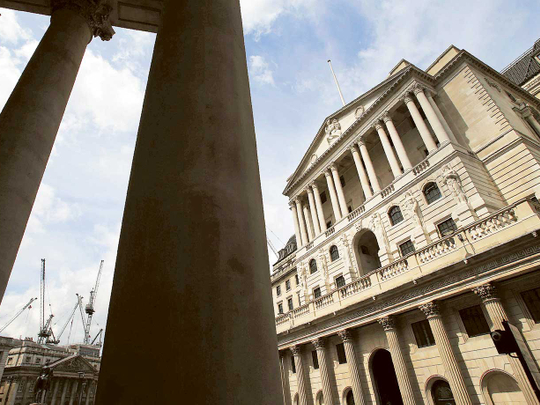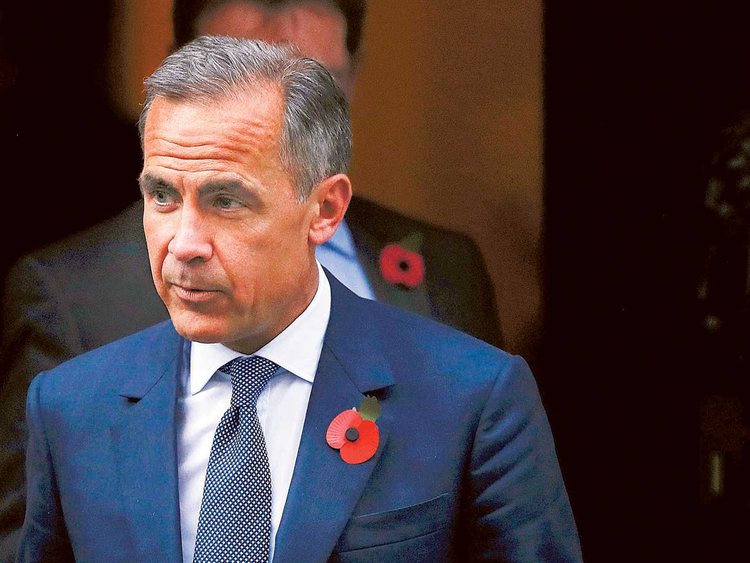
London: Mark Carney’s inflation problem goes beyond surging import costs.
The falling pound is already fuelling inflation, and Brexit could compound the impact if it makes foreign workers scarcer, hits investment and weighs on productivity. Carney, who just extended his time as Bank of England governor by a year to help steer Britain through the transition, has warned of the dangers to the supply side of the economy.
Unlike inflation driven by oil prices or the currency, home-grown triggers could prove more systemic and less likely to wash out after a period. The central bank has previously indicated a willingness to look through a short-term spike, but economists say that could be much harder to do if leaving the European Union reduces the openness of the economy.
“From a policy perspective, weaker growth in the supply potential of an economy provides less room for expansion without sparking excess inflation,” said Dan Hanson, an economist at Bloomberg Intelligence in London. It “significantly weakens the case for looking beyond above-target inflation in the short term”.
The UK is facing a specific price threat because of the pound’s slump, even as inflation remains low globally. While British unit labour costs are subdued for now and consumer-price inflation is just half the BOE’s 2 per cent target, it’s forecast to average 2.3 per cent next year. Some see it even higher, with Citigroup forecasting 3.1 per cent.
World’s worst
Sterling’s latest leg down — its 6 per cent drop in October made it the world’s worst-performing currency — coincided with speculation that the government is headed for a hard Brexit, where unrestricted access to the single market is sacrificed for tougher immigration.
The pound’s move “appears to be related to an adjustment in market perceptions to that balance of supply and demand,” Carney told the House of Lords Economic Affairs Committee on October 25.
According to Erik Nielsen, global chief economist at UniCredit in London, the economy may have less spare capacity than previously thought, leaving the BOE “less scope to look through higher currency-induced inflation.”
Carney’s remarks echoed his warnings before the June referendum that a pound sell-off could reflect investor concerns about supply. British workers already produce less per hour than the Group of Seven average, and the economy could face a further loss of growth potential if Brexit restricts migration and prompts companies to scale back investment and innovation.
That has implications for fiscal policy too, as weaker growth makes it harder to generate the tax revenue needed to erase Britain’s deficit. Chancellor of the Exchequer Philip Hammond is almost certain to announce a sharp increase in government borrowing when unveils his new budget plans on November 23.
Price in hike
Carney’s most recent comments on the issue were on October 25, when he said there are “limits” to the BOE’s willingness to look through an overshoot. The Monetary Policy Committee is forecast to refrain from cutting its record-low benchmark rate on Thursday and investors are starting to price in a hike from May next year.
“One of the major judgements they have to make is to what extent is Brexit a demand shock — people holding back from spending, particularly corporates — and to what extent is it also a supply shock through lower investment,” Rupert Harrison, chief macro strategist at Blackrock Inc, said on Bloomberg Television on October 17. “The more of a supply shock that it is, the more inflationary it’s going to be.”













